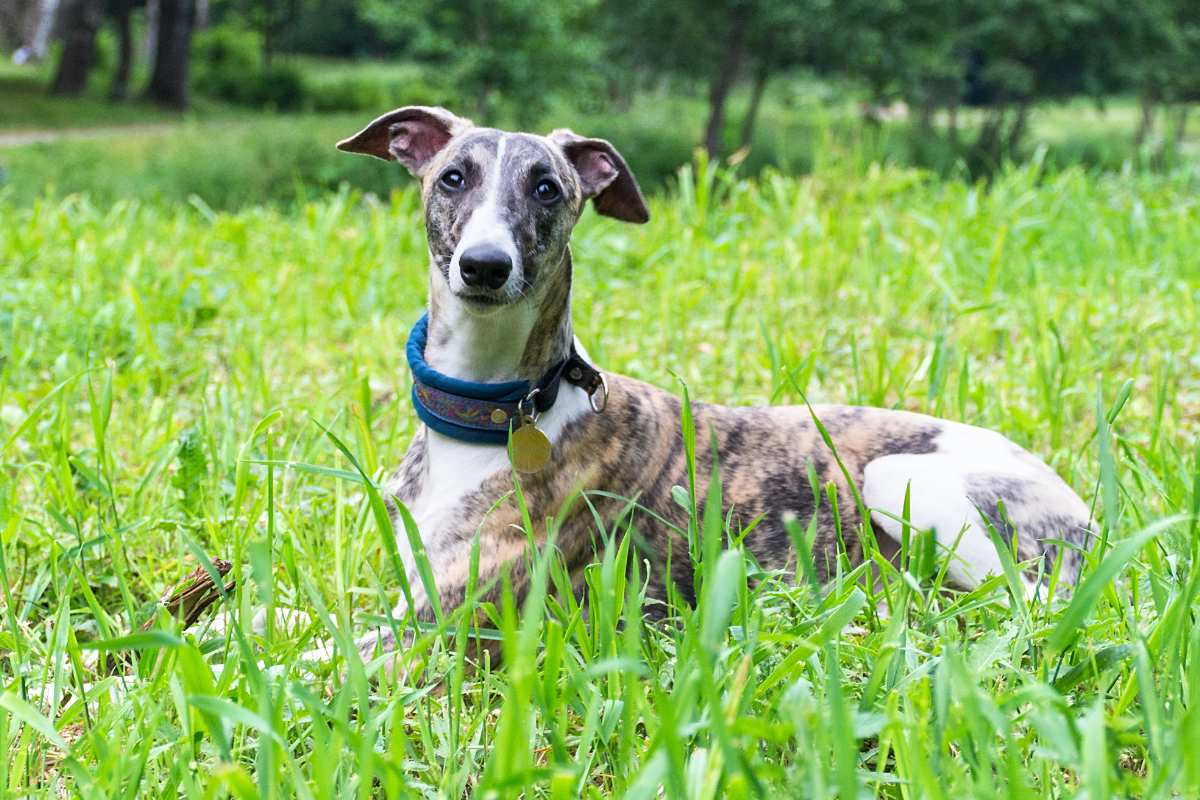Why Does My Whippet Seem Nervous And Lack Confidence

Whippets, with their sleek physique and gentle demeanor, make delightful companions for dog enthusiasts. However, beneath their elegant exterior, some whippets may exhibit inherent nervousness. This characteristic can be traced back to various factors, including genetics, environment, and early socialisation experiences. In this article, we delve into the reasons why whippet dogs can sometimes be inherently nervous and explore practical strategies to help build their confidence, ensuring a happy and well-adjusted canine companion.
Understanding the Whippet Temperament
Whippets, often referred to as "the poor man's racehorse," are sighthounds known for their agility, speed, and affectionate nature. Despite their athleticism, they are also recognised for being sensitive souls, which can sometimes manifest as nervousness. Several factors contribute to the temperament of whippets:
Genetic Predisposition - Whippets are a breed that has retained certain traits from their ancestry as hunting dogs. Sighthounds were historically bred for speed and agility, making them alert and responsive but also more sensitive to their surroundings. Genetic factors play a significant role in shaping the temperament of individual whippets, with some being naturally more anxious or nervous.
Sensitivity to Environment - Whippets have a heightened sensitivity to their environment. Changes in surroundings, loud noises, or unfamiliar situations can trigger anxiety in these dogs. Their acute senses, particularly their keen eyesight, make them more perceptive to subtle changes that might go unnoticed by other breeds.
Early Socialisation Experiences - Like many dog breeds, a whippet's early socialisation experiences play a crucial role in shaping its temperament. If a whippet does not receive proper socialisation during its formative weeks, it may develop nervous tendencies, fearing new people, places, or situations.
Reasons for Inherent Nervousness in Whippets
Timid Genetics - Some whippets may inherit a more timid disposition from their genetic lineage. If the breeding line includes individuals with a shy or nervous temperament, these traits can be passed down to the offspring. Responsible breeding practices aim to mitigate such tendencies, but genetic factors always play a role.
Lack of Confidence Building - Whippets, despite their gentle nature, may lack the confidence necessary to navigate the world securely. This can result from inadequate exposure to various stimuli during their early developmental stages, hindering their ability to adapt to new situations with confidence.
Traumatic Experiences - Dogs, including whippets, can be deeply affected by traumatic experiences. An incident such as a loud noise, aggressive encounter with another dog, or a frightening event during their formative weeks can leave a lasting impact, fostering nervous behavior.
Strategies to Boost Confidence in Whippets
Positive Reinforcement Training - Implementing positive reinforcement training is a cornerstone for boosting confidence in whippets. Reward-based training methods, where the dog is praised or rewarded for desired behaviors, create a positive association with new experiences. This encourages the dog to approach unfamiliar situations with a more confident outlook.
Gradual Exposure to New Environments - Whippets benefit from gradual exposure to new environments. Introduce them to different places, people, and sounds in a controlled manner. Begin with calm and less stimulating settings, progressively increasing the complexity as the dog becomes more comfortable. This incremental approach prevents overwhelming the dog and helps build confidence gradually.
Consistent and Gentle Handling - Whippets respond well to calm and gentle handling. Avoid sudden movements or loud noises that may startle them. Consistency in your actions and reactions builds trust, making the dog feel secure in your presence.
Socialisation from an Early Age - Early socialisation is critical for whippets. Expose them to a variety of experiences, people, and other animals during their puppyhood. Well-socialised whippets are more likely to grow into confident adults who can navigate different situations with ease.
Interactive Play and Mental Stimulation - Engage whippets in interactive play and provide mental stimulation through puzzle toys and games. This not only keeps their active minds occupied but also fosters a sense of accomplishment, contributing to increased confidence.
Create a Safe Haven - Designate a safe and comfortable space within your home where the whippet can retreat when feeling anxious. This can be a cozy bed in a quiet corner or a crate with an open door. Having a secure space allows the dog to decompress and regain composure during stressful situations.
Positive Exposure to Various Sounds - Whippets, being sensitive to noise, can benefit from positive exposure to various sounds. Gradually introduce them to noises such as vacuum cleaners, doorbells, or fireworks in a controlled environment. Pairing these sounds with positive experiences, such as treats or playtime, can help desensitise them.
Understanding and addressing inherent nervousness in whippets is essential for fostering a confident and well-balanced canine companion. By recognising the factors that contribute to their temperament and implementing positive reinforcement techniques, gradual exposure, and consistent care, owners can help their whippets navigate the world with increased assurance. With patience, love, and a proactive approach, whippet owners can unlock the full potential of these gentle and sensitive souls, creating a harmonious bond that lasts a lifetime.
-
Posted in
nervous dog, whippet





